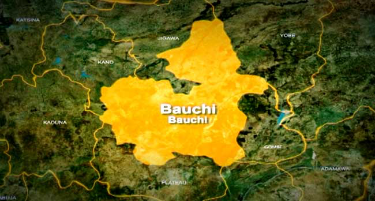A protest that erupted on Tuesday in Zaranda Gari village, located in the Toro Local Government Area of Bauchi State, turned tragic, resulting in the death of one person and several others sustaining injuries. The protest, which began in the early hours of the day, was triggered by the arrest of a local charcoal dealer, a situation that quickly spiraled into violence. By approximately 9:00 a.m., residents of the village had gathered en masse to express their dissatisfaction, but the peaceful protest soon escalated when sporadic gunfire broke out, reportedly from members of a quasi-security outfit known as the Nigerian Hunters Forestry and Security Service (NHFSS).
The gunfire sent shockwaves through the crowd, and chaos ensued as the protest quickly deteriorated into a violent confrontation between the protesters and the security personnel. As panic spread, several people were caught in the crossfire. In a statement released by the Bauchi State Police Command, police spokesman Ahmed Wakili confirmed that three individuals were severely injured during the incident. The victims were identified as Abubakar Yahaya, aged 35, Hussaini Yunusa, 20, and Yayangida Hussaini, 16.
 The injured were promptly rushed to the Primary Health Care Center in Zaranda Gari for immediate medical attention. Unfortunately, despite the efforts of the medical staff, Abubakar Yahaya later succumbed to his injuries, marking the only confirmed fatality from the incident. The loss of Yahaya has deepened the tension in the village, with residents calling for justice and demanding accountability for the actions of the security personnel involved.
The injured were promptly rushed to the Primary Health Care Center in Zaranda Gari for immediate medical attention. Unfortunately, despite the efforts of the medical staff, Abubakar Yahaya later succumbed to his injuries, marking the only confirmed fatality from the incident. The loss of Yahaya has deepened the tension in the village, with residents calling for justice and demanding accountability for the actions of the security personnel involved.
The Commissioner of Police in Bauchi State, Auwal Muhammad, has since reacted to the unfortunate events by ordering a comprehensive investigation into the circumstances surrounding Yahaya’s death. He also called for an inquiry into the conduct of the members of the Nigerian Hunters Forestry and Security Service, whose actions during the protest have come under intense scrutiny.
In a statement issued by the police, Muhammad expressed his concern over the use of force by the quasi-security outfit and pledged that the situation would be thoroughly investigated to identify those responsible for what has been described as an “unprofessional conduct.” The police further assured the public that they would not allow the actions of a few individuals to go unpunished and that steps would be taken to ensure that justice is served.
“The Command has taken control of the situation to conduct a thorough investigation and apprehend those responsible for this unprofessional conduct,” the statement read. In the meantime, tactical police teams have been deployed to the scene to restore calm and prevent any further escalation of violence. The highway that runs through Zaranda Gari, which had been blocked by the protesters, has since been reopened, and the police are working to maintain order in the area.
The protest in Zaranda Gari is emblematic of the broader tensions that can arise in rural communities where grievances over local issues, such as the arrest of community members, can lead to unrest. In this case, the arrest of the charcoal dealer appears to have been the immediate trigger, but underlying frustrations may have contributed to the scale and intensity of the protest. Charcoal trading is a common livelihood in many parts of northern Nigeria, and it is possible that the community saw the arrest as an attack on their means of survival, further fuelling their anger.
The involvement of the Nigerian Hunters Forestry and Security Service has also raised questions about the role of non-state security actors in maintaining order in rural areas. While these groups are often enlisted to assist with local security, their actions during confrontations like the one in Zaranda Gari can sometimes exacerbate tensions. The NHFSS, which operates in a somewhat informal capacity, is typically tasked with protecting forested areas and supporting law enforcement in curbing illegal activities such as deforestation. However, their involvement in this protest has prompted concerns over their methods and the level of oversight they operate under.
As the investigation continues, many in Zaranda Gari and beyond will be watching closely to see how the authorities handle the aftermath of the protest. The death of Abubakar Yahaya has become a rallying point for calls for greater accountability from security forces, both formal and informal. There is a growing demand for more responsible policing and community engagement, particularly in handling situations where force should be a last resort.
The Bauchi State Police Command, under the leadership of Commissioner Auwal Muhammad, is expected to release more details about the investigation in the coming days. For now, the community of Zaranda Gari is left mourning the loss of one of their own, while tensions remain high as the village waits for answers and justice.
In the broader context of Nigeria’s socio-political landscape, protests such as the one in Zaranda Gari reflect deeper challenges related to governance, law enforcement, and the balance between state and non-state actors in maintaining public order. The government will need to address not only the immediate causes of unrest but also the underlying issues that continue to generate conflict in rural areas, where economic hardships and perceived injustices can quickly turn volatile. Whether this latest incident will lead to meaningful reforms or simply become another flashpoint in Nigeria’s ongoing struggles remains to be seen.




